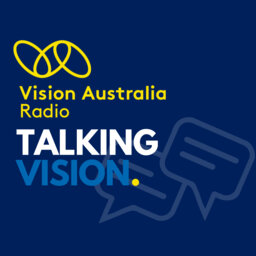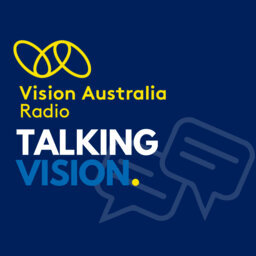Talking Vision 628 Week Beginning 6th of June 2022
On this week's Talking Vision, Stella Glorie takes the reigns to celebrate Vision Australia Radiothon. She chats to long time avid Vision Australia Radio listener, Sheila. Sheila talks about her involvement in the early days of the station, how it’s evolved over the years, her favourite programs and why the service remains as vital as ever for people who are blind like herself.
Also on the program, we hear from Vision Australia orthoptist Melissa who discusses the work orthoptists do especially when working with someone with low vision.
And Frances Keyland is on the program with a cosy murder Reader Recommended
In 1 playlist(s)
Talking Vision by Vision Australia Radio
Vision Australia Radiothon is on now. Donate via www.varadio.org and make a tax deductible donation …Social links
Follow podcast
Recent clips

Talking Vision 820 Week Beginning 23rd of February 2026
27:55

Talking Vision 819 Week Beginning 16th of February 2026
28:59

Talking Vision 818 Week Beginning 9th of February 2026
28:10
 Talking Vision by Vision Australia Radio
Talking Vision by Vision Australia Radio